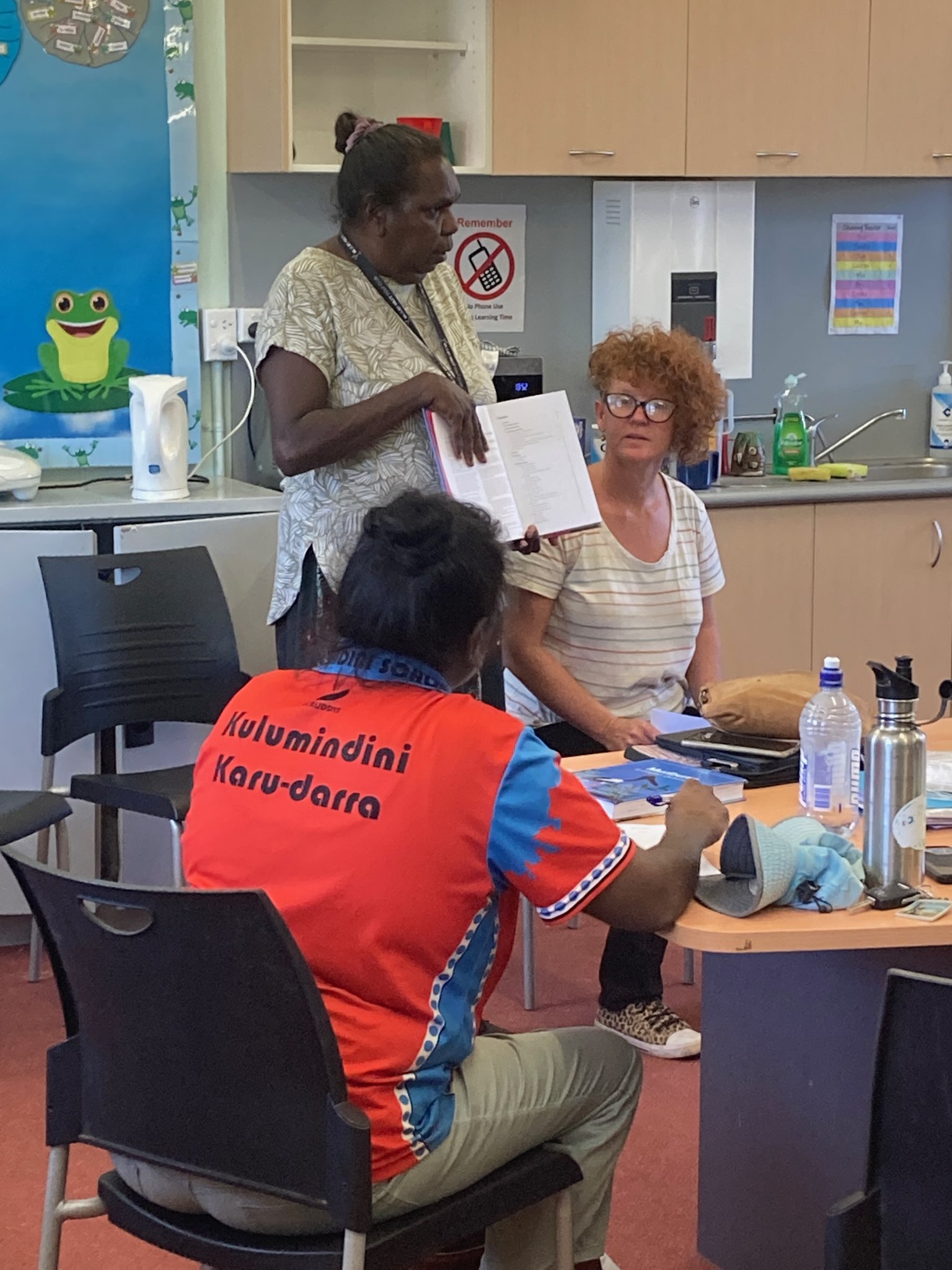Teachers and Mudburra community members recently came together with CoEDL linguists for an in-depth look at the Mudburra dictionary. Mudburra educator Janey Dixon, along with UQ School of Languages and Cultures linguists Samantha Disbray, Amanda Hamilton-Hollaway and Felicity Meakins, delivered five workshops to both Mudburra and non-Indigenous teachers in the central Northern Territory communities of Elliott and Marlinja. These workshops, which were funded by the School of Languages and Cultures and the ARC Centre of Excellence for the Dynamics of Language, aimed to familarise attendees with the Mudburra dictionary (published late 2019) and help them use it to build teaching resources.
“In these workshops, we helped the teachers and TAs [teaching assistants] learn how the dictionary works. I learned a lot too,” remarked co-facilitator Janey Dixon. “Language is very important to us and to the children in the classroom, because it’s important for children to use their own language. It helps them with their English, too. It’s really good to have our Mudburra dictionary to help the children more and more—and to help the teachers as well.”
The facilitators began by guiding participants through the sections of the dictionary. Unlike English dictionaries, the Mudburra volume contains extensive introductory sections on grammar, local history, linguistic and cultural connections, and terms relating to Mudburra family structure. After exploring each of these sections, attendees learned about Mudburra alphabetisation conventions, which differ from those of English. The Mudburra educators then devised sample lessons around resources prepared using the dictionary. Finally, the Indigenous and non-Indigenous teachers shared strategies for team teaching. “Watching the school staff members work together to devise ways of using the dictionary in the classroom was inspirational,” remarked co-facilitator Amanda Hamilton-Hollaway. “All around the country, communities face enormous barriers to getting local languages into classrooms—but Janey and the team here have shown how imminently possible it really is.”
Dictionaries of all languages hold enormous symbolic value for speakers, representing their consolidated knowledge. After these recent workshops, the Mudburra dictionary holds more practical value for the students and teachers of Elliott and Marlinja as well.

Mudburra educator and workshop co-facilitator Janey Dixon walks participants through the sections of the Mudburra dictionary. Photo: Felicity Meakins.)
 Elliott School assistant teacher Bev Wilson practices a learning activity based on the Mudburra dictionary. Photo: Felicity Meakins.
Elliott School assistant teacher Bev Wilson practices a learning activity based on the Mudburra dictionary. Photo: Felicity Meakins.



